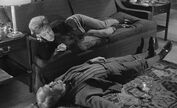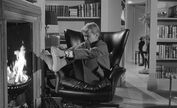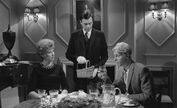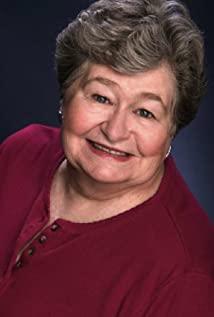-
Tony: He may be a servant but he's still a human being.
-
Hugo Barrett: I'm not staying here in a place where they just chuck balls in your face.
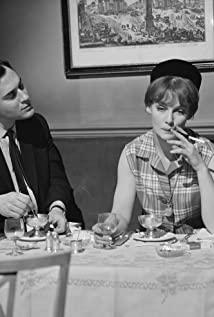
Harold Pinter
Harold Pinter (Harold Pinter, October 10, 1930 to December 24, 2008), was born in London, England, and was a British dramatist and director.
Pinter was born in a family in the East End of London on October 10, 1930. His father was a tailor. Pinter attended Hacknetdams Grammar School. When he was less than 20 years old, he began to publish poems in periodicals. From 1949 to 1957, Pinter served as a professional actor, performing in a repertoire troupe, and then began drama creation. His first play "A House" (1957) was performed in Bristol. In 1958, London staged his other play "Birthday Party". Subsequent works include "Food Delivery Lift" (1957), "Slight Pain" (1958), "Night Out" (1959), "Janitor" (1960), "Lover" (1963), "Homecoming" ( 1965), "The Silence" (1969), "The Past" (1971) and "No Man's Land" (1975), etc. Pinter's later works include "A Kind of Alaska" (1982), "On the Road" (1984), " Mountain Language " (1988), "Gathering" (1991) and " Ashes to Ashes " (1996). Pinter also writes or directs plays for radio and television stations, including L. P. Hartley's "Middleman" (1969), "Reminiscence of the Water Years" (1978) and John Fowles' " The French Lieutenant's Woman " (1982). Pinter's "Poetry and Prose" (1947-1977) was published in 1978. In 2005, Pinter was awarded the Nobel Prize in Literature.
[1]
On December 24, 2008, Harold Pinter died of cancer at his home in London at the age of 78.
[3]
Personal Life
Pinter had two marriages.
In 1956, Pinter married actress Vivien Merchant, and their son Daniel was born two years later. However, their married life was not all smooth sailing, and Pinter's two extramarital affairs accelerated the end of their marriage. From 1962 to 1969, Pinter had an extramarital affair with BBC TV reporter Joan Bakewell (Joan Bakewell) for 7 years. This relationship was later featured in the drama "Betrayal" by Pinter. In 1975, another extramarital affair between Pinter and biographer Antonia Fraser dealt a huge blow to his wife Moshant. Moshant made it public and filed a divorce lawsuit. The two divorced in 1980. After the divorce, Mosante did not remarry, but began to drink heavily. Alcohol almost ruined the career of this outstanding actress. Mosante passed away in 1982.
In 1980, after Pinter divorced Mosand, he married Antonia and began a 28-year marriage. However, life changes such as unstable family life, mother's premature death, and father's remarriage caused the gradual distance between his son Daniel and his father, and he was finally like a passer-by. When Pinter died in 2008, Daniel did not appear in the funeral. The relationship rift between Pinter and his son Daniel will never be able to make up.
Character Evaluation
His real contribution to drama is that his works can be used as teaching materials for English drama. His original text is easy to understand, but it is quite difficult to understand what is deeply conveyed in it. In fact, he has discovered the criticism of human language.
The language of his works is highly concentrated and the story is logical. This is my biggest feeling. Pinter will create its own theatrical style with the conversations of people next to it in the coffee shop or the chats on the street. This person gives people the greatest feeling of being terribly stupid, also super-smart, and courageous.
"Pinter's dramatic works are usually triggered by a particular personal experience, and will gradually take shape along their own internal logic. We cannot say that these plays are autobiographical, but they inevitably reflect that he is in The fear, worries, and concerns expressed in a certain situation."
Pinter is good at revealing the ominous and calm noises in daily life, which makes him the most influential playwright and the object of imitation of his contemporaries.
The most creative and unpredictable dramatist on the post-war British theatre stage.
"There are neither winners nor losers in Pinter's work. In a game of power between characters, people rarely see who has the upper hand; they change positions, up and down in seemingly inadvertent words."
Pinter is not a realist playwright. In his play, the characters and dialogue are very close to real life, but the effect of the whole play has an indescribable sense of mystery, giving people an inexplicable and ambiguous sense of mystery. Feeling, and this self-contradictory phenomenon is the biggest feature of Pinter's play.
"Although this most admirable playwright has been influenced by Beckett, he is undoubtedly the strongest and most energetic writer in Western literature."
In my opinion, he (Pinter) is the only British playwright who has learned from Samuel Beckett’s teachings, and he has developed Beckett’s emptiness and despair into a new kind of drama that goes beyond tradition. The category of tragedy and comedy in the conveys a distorted and complex despair that permeated the end of the twentieth century by dissolving threats, ridicule, violence, and communication failures.”
Extended Reading



